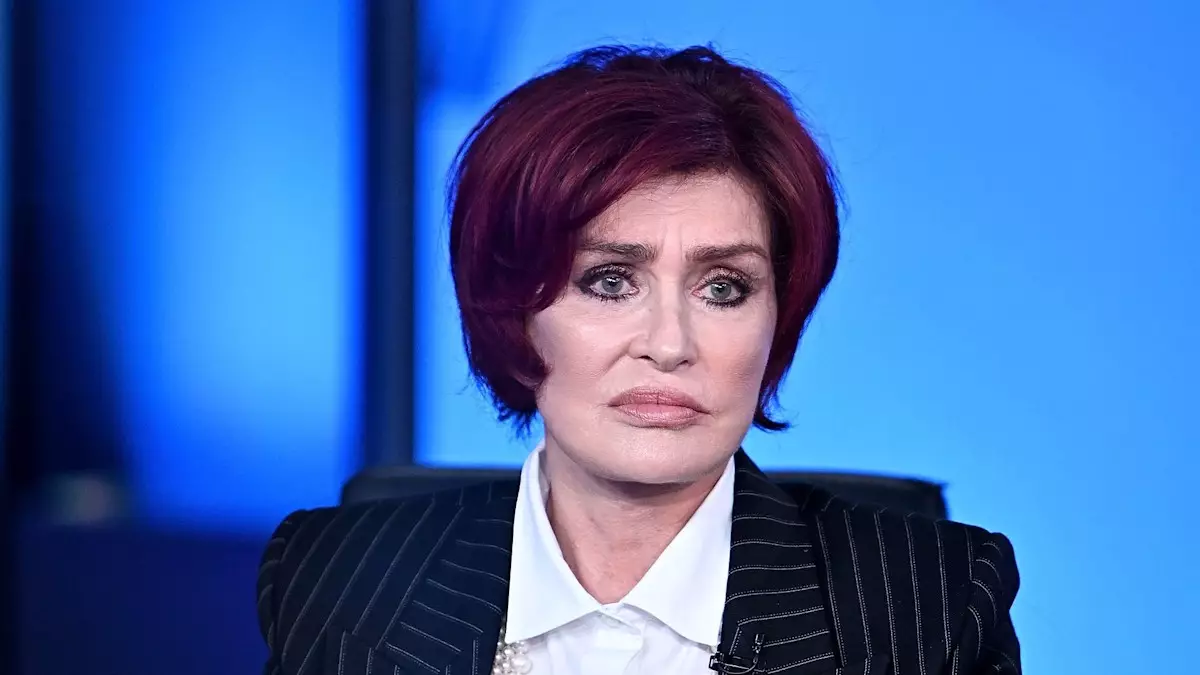In an emotional tribute that struck a chord with many, Sharon Osbourne opened up about the tragic passing of Liam Payne, a former member of the globally famed group One Direction. With her words resonating across social media, Osbourne’s reflection is not just an expression of sorrow but a critical examination of the music industry and its often harsh realities faced by young stars. At the age of 72, Osbourne’s heartfelt acknowledgment of Payne’s struggles sheds light on the pressures that come with fame, especially for those who enter the limelight at a tender age.
Sharon’s poignant remarks came in the form of an Instagram post, revealing her anguish over the significant toll that fame took on Payne. She expressed, “Liam, my heart aches. We all let you down,” emphasizing the collective oversight of an industry that allowed such a talented individual to feel isolated in his journey. This sentiment resonates particularly among those who have witnessed the rise and fall of young performers, reflecting an unsettling trend in a world that often prioritizes profits over the welfare of artists.
Liam Payne’s ascent into fame began when he was just a 16-year-old contestant on The X Factor in 2010. Introduced alongside Harry Styles, Zayn Malik, Niall Horan, and Louis Tomlinson, the group evolved into One Direction, a phenomenon that would change their lives forever. With their debut single “What Makes You Beautiful,” the band catapulted into superstardom, releasing multiple chart-topping albums and winning prestigious awards. However, the extravagant lifestyle and constant public scrutiny that came with fame posed serious challenges for Payne and his bandmates.
Despite the glitz and glamor, the reality for many young artists is often dimmer. The pressures of maintaining public image, coupled with relentless schedules and media scrutiny, can lead to severe mental health issues and substance abuse. Osbourne’s call for accountability from the music industry highlights a growing concern regarding the lack of support systems for young stars facing the intense pressures of celebrity life. The question remains: how many more lives must be affected before meaningful change occurs?
Liam Payne’s personal battles were well-documented, revealing the darker aspects of a life in the spotlight. His struggle with alcoholism was highlighted during interviews, notably when speaking on The Diary of a CEO podcast. He openly discussed hitting “rock bottom” and admitted that his difficulties persisted even during the challenging period of the pandemic. While there were moments of hope, such as his announcement of sobriety after nearly six months in 2023, the tragic reality is that redemption can often be a fleeting concept in such draining circumstances.
The music industry often champions stories of success but frequently overlooks the narratives of struggle that accompany them. Liam’s plight serves as a reminder of the human cost behind the celebrity façade. His candidness regarding his demons offered a glimpse into the often-muted mental health challenges faced by artists. However, the limits of this honesty were starkly illustrated by his untimely passing, leaving fans and industry insiders alike grappling with the shock of yet another lost star.
As Sharon Osbourne poignantly concluded her tribute, urging for support systems within the industry, it sparks essential discussions regarding the responsibilities that come with nurturing young talent. The tragic loss of Liam Payne serves as a rallying cry for systemic change, emphasizing the crucial need for mental health resources, peer support, and accessibility to counseling for emerging artists. The entertainment industry must take the necessary steps to cultivate a safer environment that prioritizes the well-being of its youngest and most vulnerable members.
In the wake of Liam Payne’s passing, we are compelled to reflect on the societal implications of fame and success. As the music industry grapples with its past failures, it is vital for fans, industry advocates, and insiders alike to unite in fostering a culture of support that places mental health at the forefront. Only through collective action can we hope to prevent further tragedies and create a brighter, more compassionate future for those who aspire to shine in the limelight.


Leave a Reply